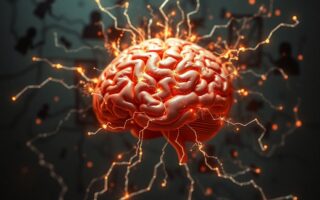Understanding Brain Zaps and Anxiety: Symptoms, Causes, and Management
Brain zaps, also known as brain shivers or electrical shock sensations, are a peculiar phenomenon often associated with antidepressant withdrawal or changes in medication. However, some individuals may experience brain zaps in the context of anxiety or stress. In this comprehensive guide, we’ll explore the symptoms, causes, and management strategies for dealing with brain zaps in the context of anxiety.
1. Symptoms of Brain Zaps in Anxiety
- Electric Shock Sensations: Brain zaps are characterized by sudden, brief sensations of electrical shocks or jolts in the head or brain. Individuals may describe these sensations as feeling like a sudden jolt, zap, or buzz.
- Dizziness or Vertigo: Some individuals may experience accompanying symptoms such as dizziness, vertigo, or a sensation of imbalance during brain zaps. These sensations can be disorienting and may impact daily functioning.
- Auditory Disturbances: In addition to physical sensations, some individuals may report auditory disturbances or changes, such as hearing strange noises or ringing in the ears during brain zaps.
- Visual Disturbances: Brain zaps may also be accompanied by visual disturbances, such as flashes of light, blurred vision, or changes in visual perception.
- Emotional Distress: Experiencing brain zaps can be distressing and may exacerbate feelings of anxiety, panic, or emotional instability in some individuals.
2. Causes of Brain Zaps in Anxiety
- Neurotransmitter Imbalance: Anxiety disorders are associated with alterations in neurotransmitter levels, particularly serotonin and gamma-aminobutyric acid (GABA). Changes in neurotransmitter function may contribute to the development of brain zaps in individuals with anxiety.
- Stress and Psychological Factors: Heightened stress levels and psychological factors such as anticipatory anxiety or hypervigilance may exacerbate symptoms of brain zaps in individuals predisposed to anxiety.
- Medication Effects: While brain zaps are commonly associated with antidepressant withdrawal or changes in medication, some individuals may experience similar sensations in the context of anxiety, especially if they are sensitive to changes in neurotransmitter function.
- Sleep Disturbances: Poor sleep quality or disruptions in sleep patterns can contribute to the development or exacerbation of brain zaps in individuals with anxiety. Sleep disturbances are common in anxiety disorders and may worsen symptoms of brain zaps.
- Underlying Medical Conditions: In some cases, underlying medical conditions such as migraine, epilepsy, or neurological disorders may be associated with brain zaps. Individuals with comorbid anxiety and these conditions may experience overlapping symptoms.
3. Management Strategies for Brain Zaps in Anxiety
- Medication Management: If brain zaps are medication-related, work closely with a healthcare provider to manage medication dosage, tapering, or switching strategies. Abrupt discontinuation of certain medications can trigger or worsen brain zaps.
- Stress Reduction Techniques: Practice stress-reduction techniques such as deep breathing exercises, mindfulness meditation, progressive muscle relaxation, or yoga to help alleviate symptoms of anxiety and minimize the occurrence of brain zaps.
- Healthy Lifestyle Habits: Adopt healthy lifestyle habits such as regular exercise, balanced nutrition, adequate sleep, and stress management to support overall well-being and reduce anxiety-related symptoms.
- Cognitive Behavioral Therapy (CBT): Consider seeking therapy, such as cognitive-behavioral therapy (CBT), to address underlying anxiety symptoms and develop coping strategies for managing stress and anxiety-related symptoms.
- Mindful Awareness: Increase awareness of triggers or situations that may exacerbate symptoms of anxiety and brain zaps. Practice mindfulness techniques to observe thoughts and sensations without judgment and cultivate a sense of calm and groundedness.
Conclusion
Brain zaps can be a distressing symptom experienced by individuals with anxiety, contributing to feelings of discomfort, disorientation, and emotional distress. By understanding the symptoms, recognizing potential triggers, and implementing effective management strategies, individuals can take proactive steps to alleviate brain zaps and reduce anxiety-related symptoms. Remember to work closely with a healthcare provider to address any underlying medical or medication-related factors contributing to brain zaps and seek appropriate support for managing anxiety symptoms.











